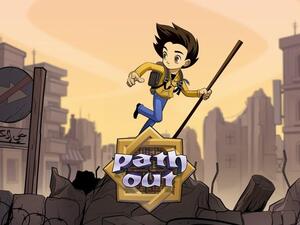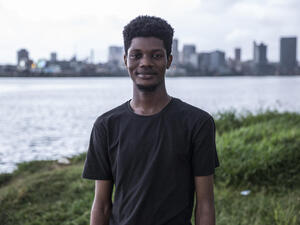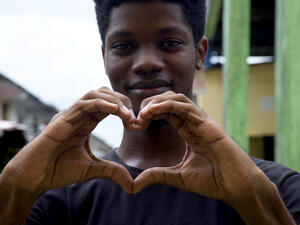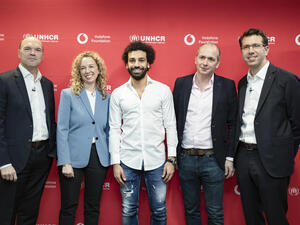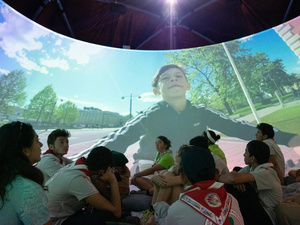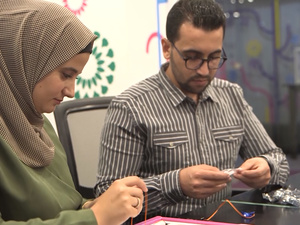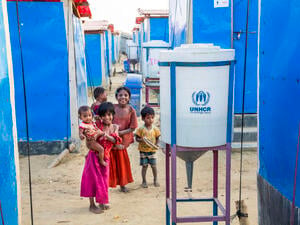Mobile phone helps one Somali refugee send long-distance SOS
Mobile phone helps one Somali refugee send long-distance SOS
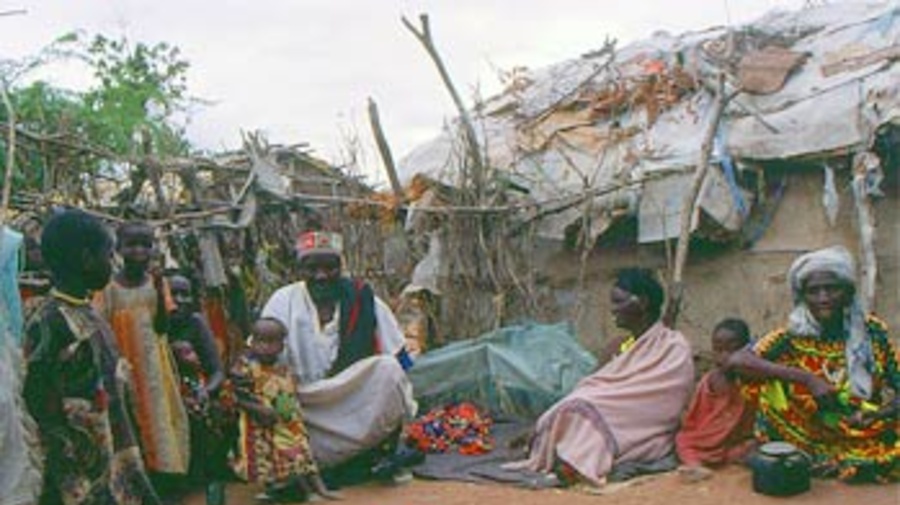
Shelter for refugees at the Dadaab camp in Kenya is very basic. Huts made of twisted branches, plastic sheeting and rags are the norm.
GENEVA, June 23 (UNHCR) - The mobile phone bleeped twice in the London offices of the UN World Food Programme and shuddered briefly. A cancelled meeting? A free mobile upgrade? No. This time, an appeal, direct from a disaster zone in the Horn of Africa.
The text message was short and to the point: "My name is Mohammed Sokor, writing to you from Dagahaley refugee camp in Dadaab. Dear sir, there is an alarming issue here. People are given too few kilogrammes of food. You must help."
All of a sudden, two worlds collide. The sender is a Somalian driven from his country by war, living at the very edge of existence in a northern Kenya refugee camp that itself is situated in the middle of a drought zone. The recipient, one who lives in the comfort zone of the industrialised world, where hunger and poverty are a distant problem, beyond the horizon of most.
In terms of sheer initiative, Mohammed's direct appeal has to be a first. Using nothing more extravagant than a mobile phone, he shows that the gulf between the haves and the have-nots is so much smaller than many of us would imagine.
The stereotypical image of the faceless anonymous victim of another African disaster is shattered, and a voice and a name are given to the tragedy unfolding in the Horn of Africa.
A phone call to Mohammed reveals the story behind his plea for help. It began when he was still a schoolboy and fled his home town of Bardere 15 years ago. Like so many Somalis, he had the misfortune to be born in a country that began disintegrating in spectacular fashion when the Cold War structures that had held so many weak states together suddenly collapsed in the early 1990s.
The vicious militia groups that rushed in to fill the vacuum left by absent government exacerbated the apocalyptic famine in Somalia, prompting tens of thousands to move southwards and across the border to relative safety in Kenya. Here they were confined to refugee camps situated in one of the bleakest environments in the world, and here, many remain to this day.
If life was tough at home in Somalia, it was not much easier in northern Kenya. The camps in Dadaab are in a semi-desert area that can be brutally hot during the day and cold at night. Mohammed spends his days as a volunteer primary school teacher, working with one of the international relief agencies inside the refugee camps.
It may seem strange that someone so short of food can afford a mobile phone but one of the great ironies of modern Africa is that mobile phones are seen as a necessity, rather than a luxury. They are often cheap and used far more widely than most would imagine. For traders, they are the primary tool of commerce and for the many millions - like Mohammed - who make up the African diaspora, they are the thread that binds scattered communities together.
Shelter for refugees like Mohammed is hardly luxurious. Huts made of twisted branches, plastic sheeting and rags are the norm. To spend 15 years in Dadaab would be considered a form of purgatory for most, and this year has been particularly tough for Mohammed.
Successive seasons of drought have placed his refugee camp at the very epicentre of a regional disaster that is affecting up to 8 million people in the Horn of Africa. While it may be one kind of misfortune to live in a drought zone, it is a whole lot worse to be a refugee who lives in a disaster zone. Even in the midst of suffering, there are pecking orders and refugees tend to find themselves at the very bottom.
Most of the world's refugees live in sub-Saharan Africa with Mohammed. Across the world, he is part of a refugee population of 1.9 million that the World Food Programme (WFP) intends to feed this year. It is not surprising that Mohammed and his family are hungry. Funding for the 230,000 Somali and Sudanese refugees in north-east Kenya is so low, that the World Food Programme had to cut food rations by up to 20 percent earlier this year. It was a difficult decision which was like putting hungry people on a crash diet.
This is probably why Mohammed sent his text in the first place. If he had the time and the money, he might like to spread his message further by texting his appeal to ministers and civil servants - or for that matter, Bono, Richard Branson and Bill Gates.
It will never happen, but it would be interesting to measure the impact on donor support if, alongside regular food rations, the World Food Programme could hand out mobile phones and a list of VIP telephone numbers. Humble SMS text messages from refugees could become an effective SOS for millions whose voices are so rarely heard.
Greg Barrow is a Senior Public Affairs Officer for the United Nations World Food Programme in London



